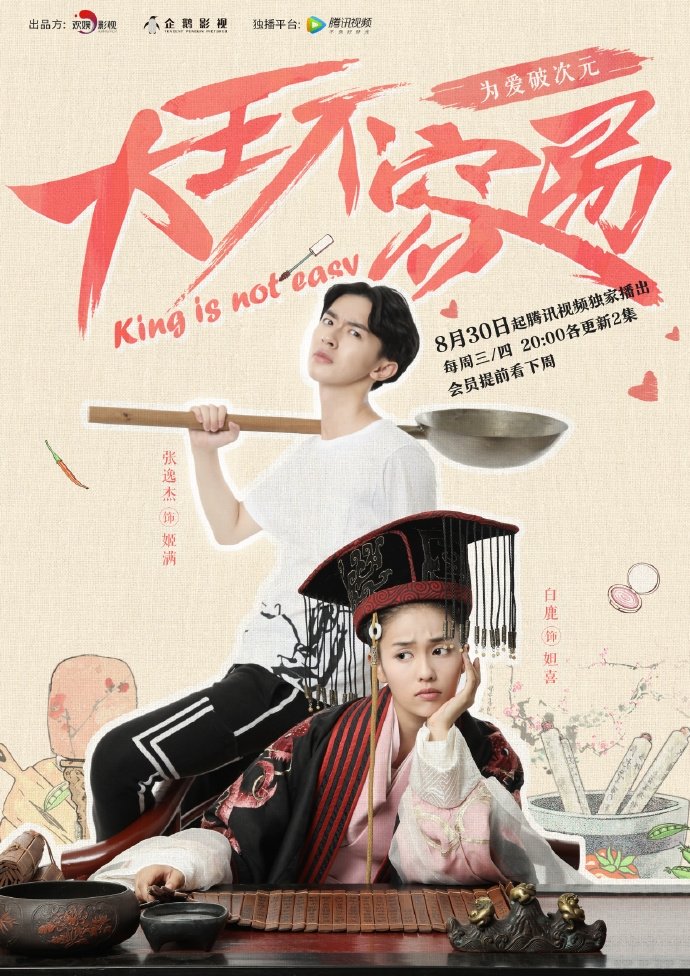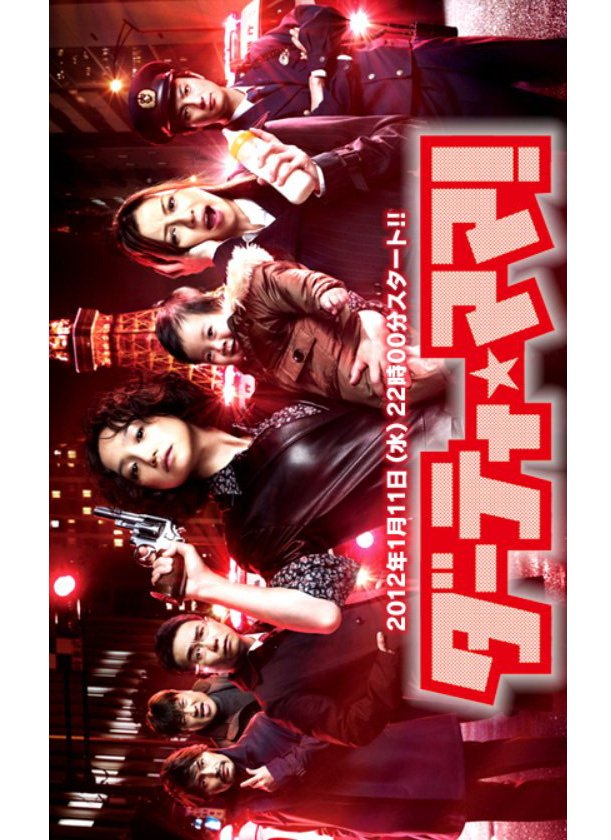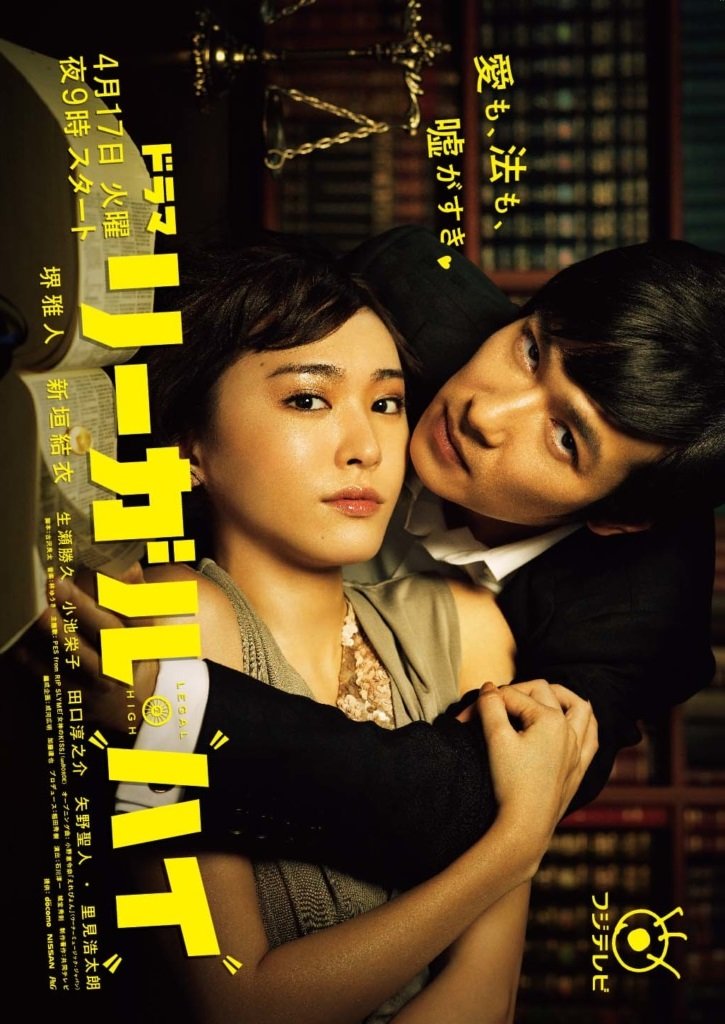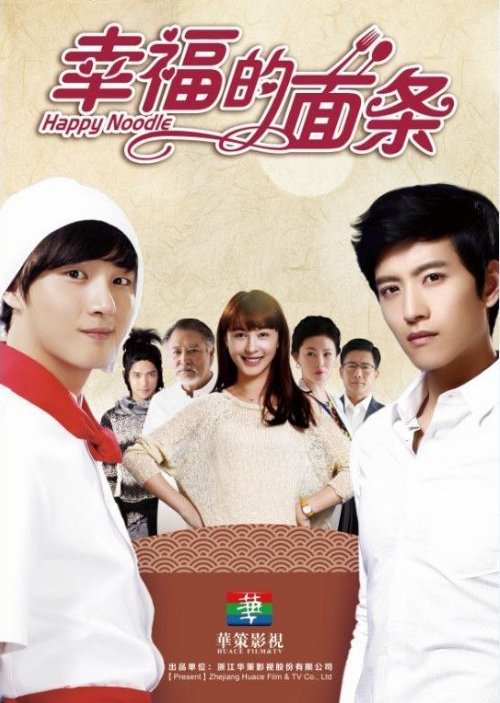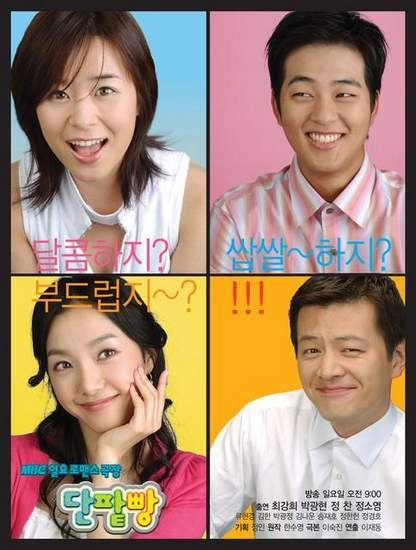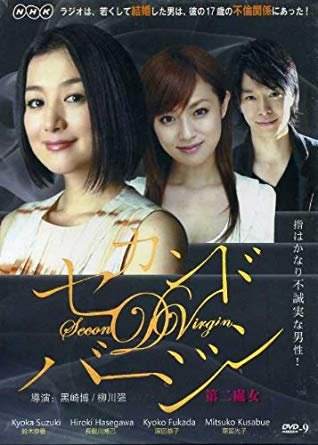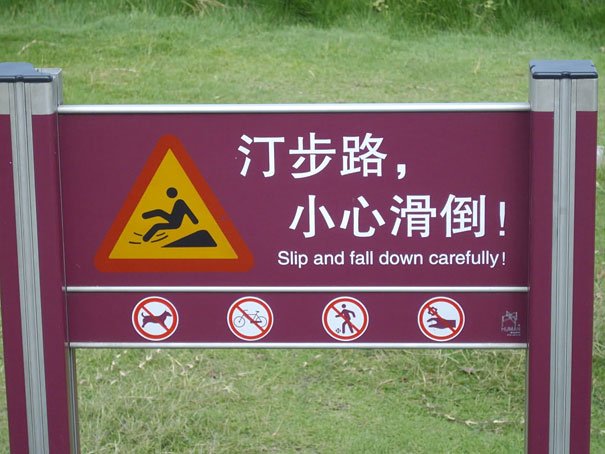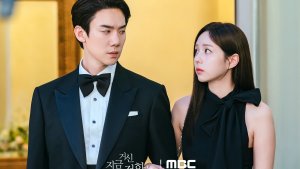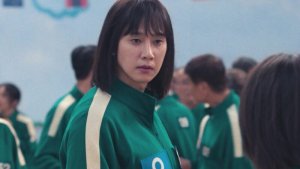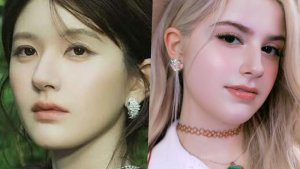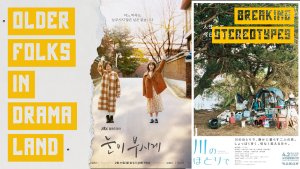 Breaking Stereotypes: Older Folks in Dramaland
Breaking Stereotypes: Older Folks in Dramaland
This article can be viewed in either dark/light mode.
~ To start with, I am going to assume that the audience for this article is English-speaking, and neither Chinese, Japanese nor Korean is your first language. This is necessary in order to enjoy the full benefits of subtitle-dependence and appreciate this article. ~
Poor translations are nothing new for Asian drama lovers, and drama titles are one of the most common victims of this disease. When you read dramas (because you cannot just watch and understand dramas when you have subtitle-dependence), there are too many instances of words losing their subtle meaning or significance as they get translated. This phenomenon is called 'lost in translation'.
Nothing hits me worse - (obviously there are a lot of things, but for this instance let's assume it's nothing) - nothing hits me worse than seeing the amazing names that drama-land comes up with for its shows.
The Chinese Entertainment Industry is one of the major culprits because we all know there are so many idioms in Chinese which really cannot be translated into English. Also, Chinese is the most spoken language in the world (source). The English-speaking audience is NOT their target viewer. What doesn't help matters is that they have a very strict censor board. So, when you compare the local/national viewership with us meager international audiences, the numbers tell the truth. It's a tough place we are in. TBH, I'd have preferred the Chinese title over their attempt at English, but more on that later.
That is not to say that the Korean Drama Industry doesn't suffer from the same problem. There are some remarkable1 K-drama titles as well, and Japanese doramas – well, what do I say about the Japanese! Sometimes I think they have arrived at a brilliant strategy as opposed to their Chinese counterparts, in the sense that they don't even bother to translate their titles! Most (not all, mind you!) Japanese titles are in Japanese, which is a safe bet since we don't have to be bothered with whether they make sense in English or not. And yet there are some unforgettable J-drama titles too!
Just to be clear, I don't blame any country per se for its garbage translations. I 'blame' no one, but do believe that a lot of fault lies with the English language itself.
English is probably the worst language you could use to translate any Asian language into, because: [A] Its root differs from Asian languages. It stems from Germanic languages, while Asian languages fall into four major language groups: Indo-European, Sino-Tibetan, Dravidian and Altaic. [B] There is significant cultural difference between native speakers of English and Asia, and lastly, [C] English is younger than most Asian languages. BUT these are also some of the very reasons why it is so easy to learn English as opposed to other languages.English with its flexible rules allows us to understand someone else even with their broken English. (source) |
Another very common occurrence is the scarce use of punctuation in the English translations, and there is a good reason for this. It is only in the 20th century that punctuation began to be used in Chinese. In Japan, some years after the Meiji Restoration, the Ministry of Education finally passed a bill letting people know how to use punctuation, like the period and the comma. Korean traditional punctuation marks were developed in association with learning Chinese. This is why there is a conceptual gap between the traditional punctuation and the current punctuation marks, which are more westernised (sic).
And this all proves why punctuation has always been a source of contention when translating these languages to English, where the placement of a punctuation mark makes a world of a difference to the intended meaning.
THE WHAT?
So now that we have confirmed English ain't going nowhere, let us discuss what poor translation means. A translation could be poor because of three reasons:
[I] Incorrect Language Structure |
| This type of poor translation occurs when there is a grammatical error in the title. Grammar issues are extremely common, and all translation errors lead to incorrect language structure, thereby rendering the title nonsensical. Another minor issue besides the lack of syntax is the lack of punctuation. There are many times when just a colon (:), a hyphen (-), a comma (,) or an exclamation (!) would solve all problems. Examples: Girl Gun Lady is grammatically incorrect. 'Girl' and 'Lady' both refer to the feminine. It should either be 'Gun Lady' or 'A Girl with a Gun'. How Are You Bread has a lack of punctuation, which gives it a different meaning. In English the title would imply you are asking someone (person/s) how they turned themselves into a bread loaf. The correct title should be: 'How are you, Bread?' - this is personifying the bread and asking it how it is doing, which is acceptable in terms of artistic liberty. And Youth Should be Early? Well not necessarily. The original title is '青春须早为' which roughly translates to 'Youth must be' so I'm still at a loss as to what the title actually means. Maybe they should have left it at 'Youth'.The Devil Judge should be The Devilish Judge, The Judge who is a Devil, The Judging Devil, The Devil or The Judge. Any of which would have been an improvement. (Note: there could be multiple things wrong with these drama titles, which we will realize as we delve further into the article) | Components of Language Structure 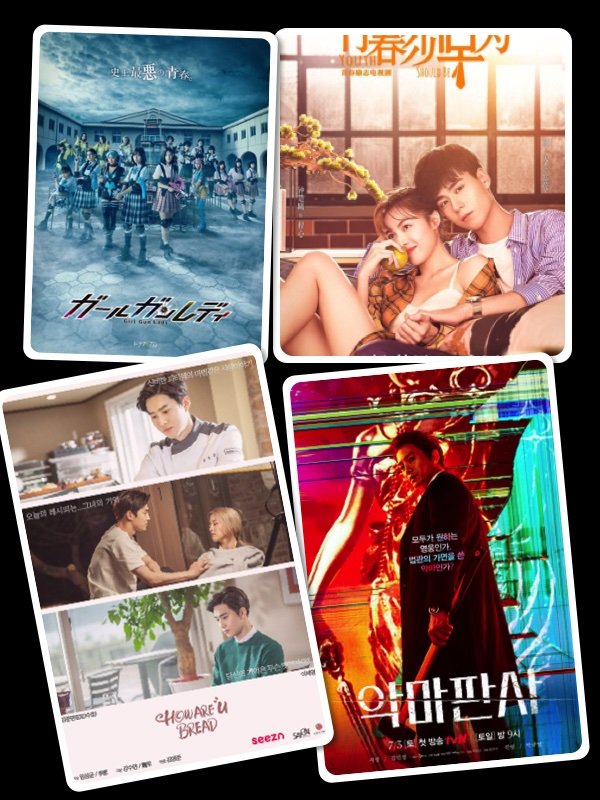 MDL drama posters clockwise: Girl Gun Lady, Sweet Teeth, How are you Bread, Devil Judge MDL drama posters clockwise: Girl Gun Lady, Sweet Teeth, How are you Bread, Devil Judge |
[II] Literal Translation |
| Errors occur when you literally translate words from one language to another without considering whether it makes sense. There will be words, idioms and phrases that don't translate 'as is' because either they do not exist in English or they are grammatically incorrect, leading to incomprehensible titles. Examples: Military Prosecutor Doberman – Apparently, Doberman is a moniker used by people as an inside joke to call Do Bae Man, the protagonist, who is a Military Prosecutor. I would have left it at 'Military Prosecutor Do-Bae-Man'. Too bad no one asked me. Shut Up Flower Boy Band is another great example of a literal translation that makes no sense in the language it's translated to. A 'flower boy' can be described as a man having a soft appearance, smooth skin, decent manners and wearing fashionable makeup and clothes (sic) (kkonminam in Korean). In English, it could be used to refer to a boy who sells flowers, thereby rendering the title nonsensical. Also, there should be a comma and a punctuation mark (!) in the title which could have possibly helped, if nothing else. I Want to Eat Your Pancreas doesn't make sense in English unless the story is about cannibalism, which it isn't. The title is a metaphor used to express a wish to be closer to the female lead who suffers from a pancreatic illness. Boys Over Flowers is a classic case of literal translation error. This cryptic title is because of a Japanese pun that doesn't translate well into just three words. More on this later. The possibilities are endless, but I hope we can all agree that these titles as they currently stand make no sense whatsoever in English. | 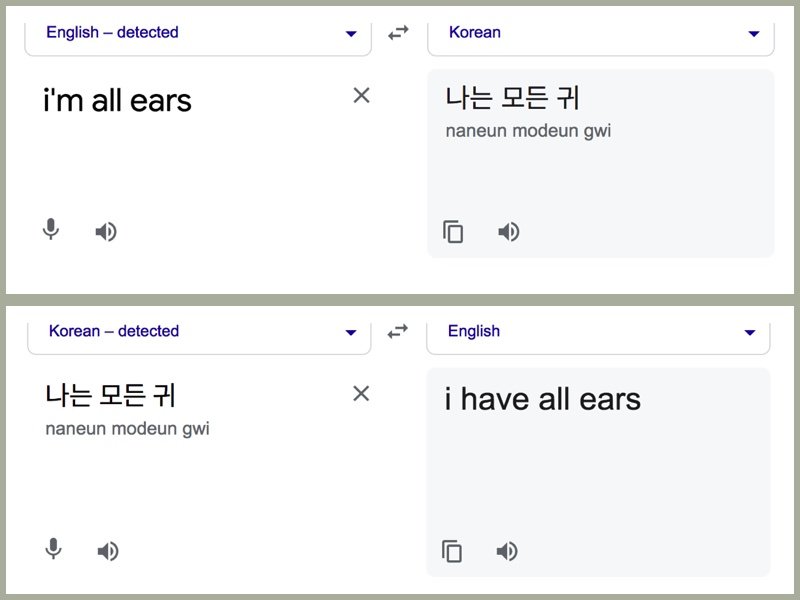 I'm all ears means I'm listening with utmost concentration and not that i have all ears. Google Translate does a killer job at literal translations! I'm all ears means I'm listening with utmost concentration and not that i have all ears. Google Translate does a killer job at literal translations!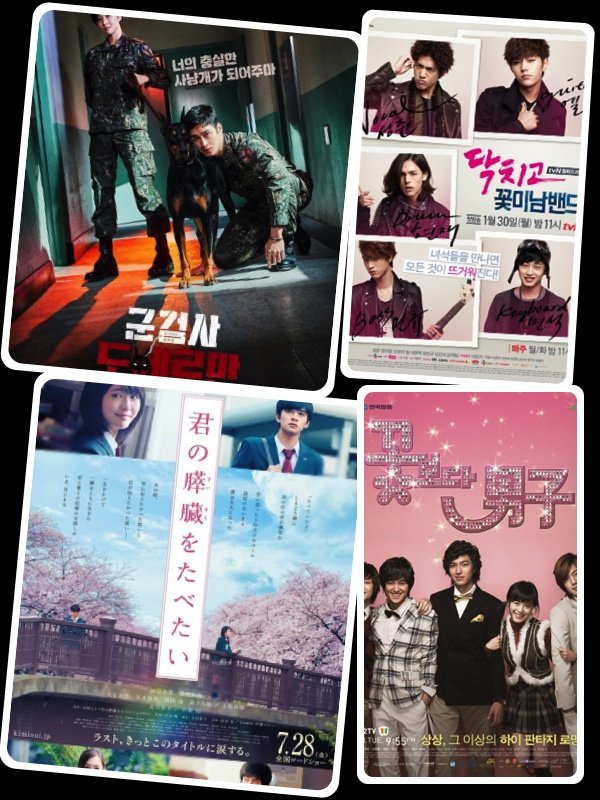 MDL drama posters clockwise: Military Prosecutor Doberman, Shut Up Flower Boy Band, I Want to Eat Your Pancreas, Boys Over Flowers MDL drama posters clockwise: Military Prosecutor Doberman, Shut Up Flower Boy Band, I Want to Eat Your Pancreas, Boys Over Flowers |
[III] Cultural Significance |
| Translators need to consider the cultural implication when translating words into different languages as well. A certain word may mean something in Chinese/Korean/Japanese, but mean nothing or something completely different in English. Though there are some universal cultural concepts, the way they are interpreted may differ based on the country. Each language has its own interpretation according to its peoples’ way of thinking, living style, and even their geographic position (sic). Thankfully, cultural significance comes into play mostly when preparing the subtitles and not so much when translating the drama title. Examples: The Korean Aegyo – a cute display of affection often expressed through a cute voice, changes to speech, facial expressions, or gestures (sic). Sounds cheesy in English but is interpreted very differently in Korean. The Chinese Yuán fèn – the mysterious force that causes two lives to cross paths in some meaningful way (sic). You can call it fate but it means so much more in Chinese. The Japanese Umami – this is such a well known word that it's been added to English. 'Itadakimasu' literally translates as 'I humbly receive' and goes beyond a simple 'bon appétit' or 'enjoy your meal' (sic). There are many words and gestures that get ignored, (during the translation and when we are busy reading them instead of watching the characters on screen) just because they have no English equivalent, nor would they have the same cultural impact in English-speaking countries. Anyway, cultural significance plays a role in poor translations, so I rest my case. | 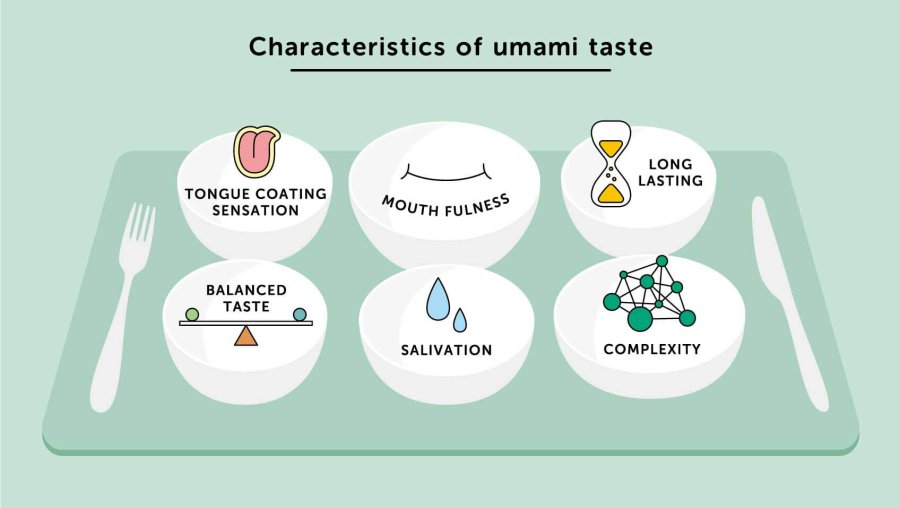 The Sensation of Umami |
THE WHY?
Now that we know the 'what' of the matter, let's try to understand the 'why'.
Why do we have to suffer these poor translations? Why can we not have a great title that fits our image of the drama? Why are we always left interpreting the title? So many why-s. Again, there could be multiple reasons but mostly this is because of one of the following: 1. Lack of Funds |
THE HOW?
And how do these decisions reflect in our drama? Well, I'll try to categorize the most common types of ridiculous drama titles that we are left with due to these errors.
[A] Half-Baked Title |
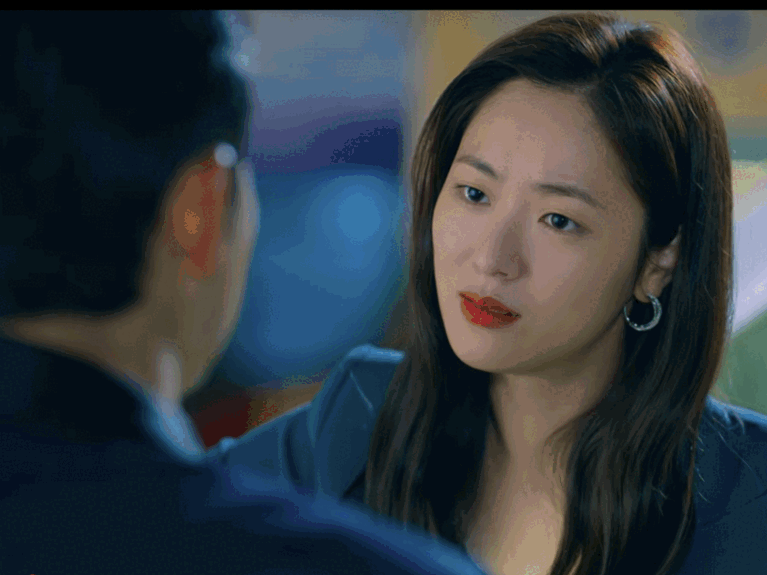 Since the production house cannot be bothered2 to search for an equivalent phrase in English, the audience is forced to contend with a half-baked title. This trend is also popular when the drama is based on an already existing source material. Since the production house cannot be bothered2 to search for an equivalent phrase in English, the audience is forced to contend with a half-baked title. This trend is also popular when the drama is based on an already existing source material.Examples include Eternal Love of Dream, Youth Should be Early, Gank Your Heart, Boys Over Flowers, My Right Older Brother. |
[B] Nonsense Title |
Examples include Splash Splash Love, Adolescence Medley or Puberty Medley (there is no saving either version), The Inheritors or The Heirs, Waking Love Up & Forget You Remember Love. |
[C] Loaner Title |
The reason could also be that it isn't an English title per se as it Examples include Sararîman Kintarô, Orenji Mamalleideu (Based on a webtoon but the title is Konglish), Girl Gun Lady (or Garuganredi). What is interesting is that these English words sometimes mean slightly different things in the language they are used, eg: Japanese kanningu (カンニング) does not mean "cunning" but "cheating" (on a test), and handorukīpā (ハンドルキーパー, "handle-keeper") means designated driver (sic). |
[D] Bad Title |
This is a case of all around bad choices. A bad title has no This topic though is completely subjective to the viewer and I am sure will evoke differing opinions. Examples include Eternal Love, Master Devil Do Not Kiss Me, The General's Lady (original emphasises the lady rather than the general), General & I, The Seventh Generation, Gank your Heart, and on and on. |
And folks! That's how we get these beautiful, nonsensical titles that we end up either loving or hating after we watch the drama.
THE WHO?
We have already seen quite a few examples of drama titles suffering from translation losses. We will now categorize a few more titles based on the 'what' and the 'how' criteria. Additionally, we will ponder on the possible meanings of each translation. I am sure you have watched at least one if not more of the following dramas. So let's see if any of these titles has rubbed you the wrong way or your favourite drama has come under my microscope. |
Note: I'll be ignoring the 'why', as I have no idea which of the reasons is actually responsible for the amazing buffet of trash titles. And I don't want to make any further conjectures.
|
a. The victims of Bad Grammar About Is Love is a nonsense title [B]. It should be 'About Love' which surprisingly is also what the original title 大约是爱 means. God knows why they ignored that.Going My Home: omit 'my' and the title is fine, or it could be 'Going to my House'. This is a bad title [D]. A home is a place where you belong. No need for 'my'. Crying Out Love, In the Centre of the World should be 'Crying out 'Love', in the centre of the world' or 'Crying out for love in the centre of the world'. Either is fine. This is half-baked [A]. | 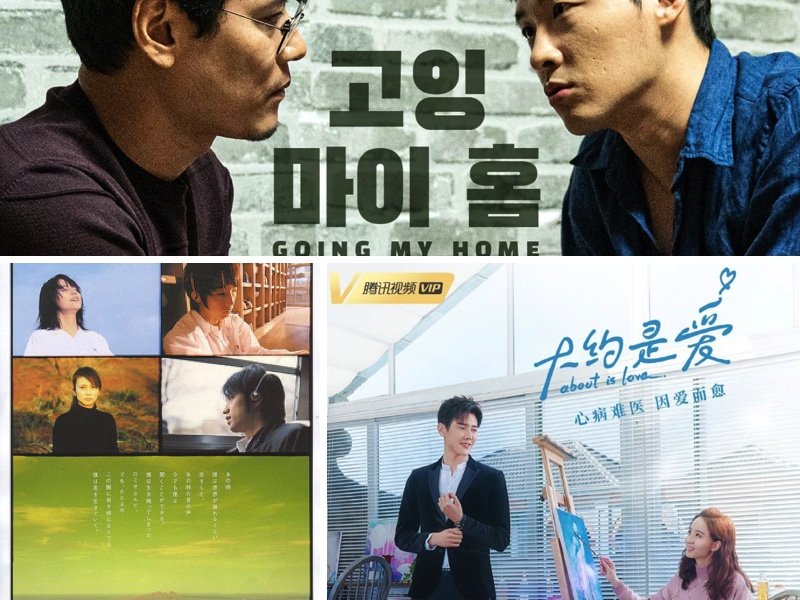 MDL drama posters clockwise: Going My Home; About Is Love; Crying Out Love, In the Centre of the World MDL drama posters clockwise: Going My Home; About Is Love; Crying Out Love, In the Centre of the World |
b. The victims of Bad Punctuation An exclamation at the end would suffice to make sense of You Don't Know Women.Ring Ring Bell should have been 'Ring, ring!' or 'Ring the Bell!' Why Why Love should be 'Why Love?' Same for Come, Come, Absolutely Come. Needs a (!). Just one come is enough. It could be 'Absolutely Come!' or 'Come, come!'. Go Go Squid! needs a couple of commas to become passable. All titles in this category are half-baked [A]. | 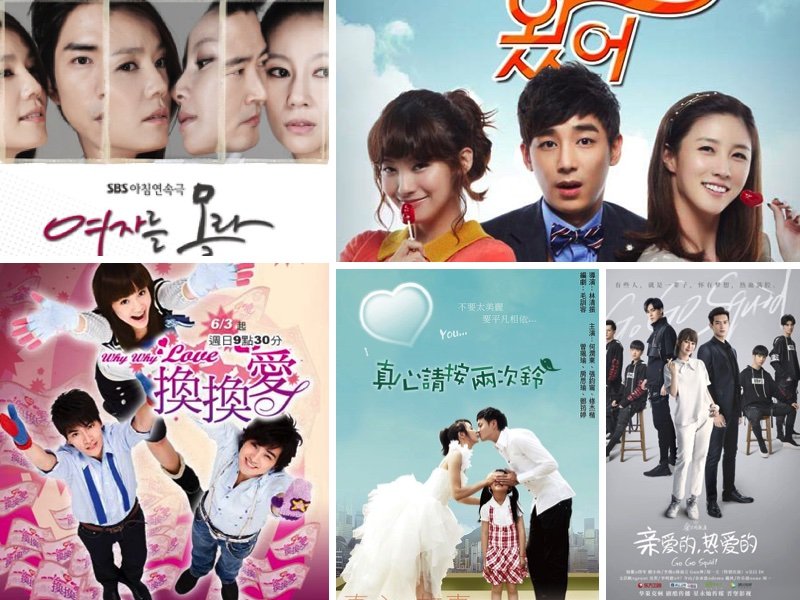 MDL drama posters clockwise: You Don't Know Women; Come, Come, Absolutely Come; Go Go squid!; Ring Ring Bell; Why Why Love MDL drama posters clockwise: You Don't Know Women; Come, Come, Absolutely Come; Go Go squid!; Ring Ring Bell; Why Why Love |
|
| I guess our protagonist could be the 'cat' when he met real life dolphins in When Dolphin Met Cat, but I'm open to understanding the mystery of this title. This falls under the half-baked category [A]. Daddy Long Legs could do with quotation marks or hyphens: 'Daddy-Long-Legs', but would still have weird connotations. In English, this phrase refers to spiders or flies having long legs. The title should have been 'My Benefactor'. Feels like [A] to me. Kimchi Cheese Smile in English is nonsense but I believe saying 'kimchi' is the alternative to saying 'cheese' when you get your picture taken. A [B]. The Legend of Brown Sugar Chivalries needs single quotes for 'Brown Sugar', though the title still makes no sense. Clearly 'brown sugar' is a metaphor for something, if you know please let me as well. An [A]. The Bean Chaff Of My Life needs single quotes around 'bean chaff' or the alternative title suits 'My Better Half'. Half-baked [A]. Roses and Bean Sprout mean nothing in English except the foods they represent. In Korean it could describe a family though. Another [A]. | 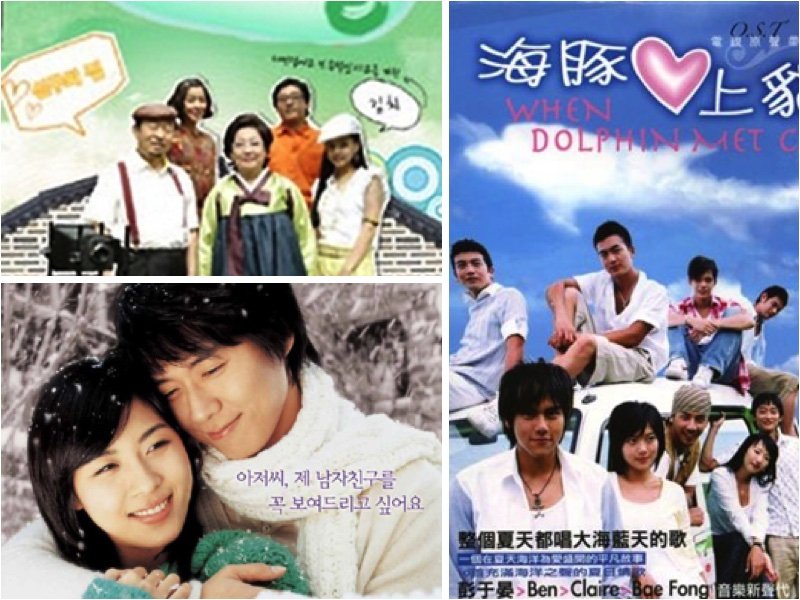 MDL drama posters clockwise: Kimchi Cheese Smile, When Dolphin Met Cat, Daddy Long Legs MDL drama posters clockwise: Kimchi Cheese Smile, When Dolphin Met Cat, Daddy Long Legs 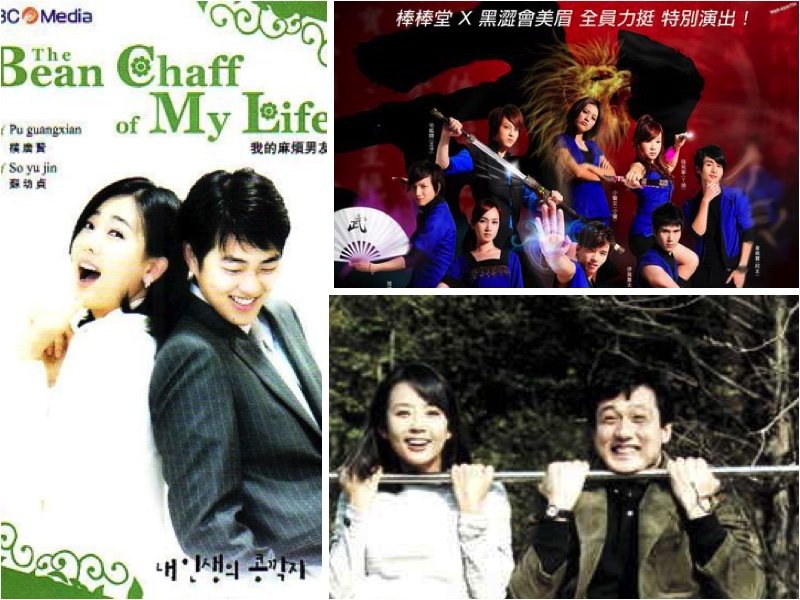 MDL drama posters clockwise: The Bean Chaff Of My Life, The Legend of Brown Sugar Chivalries, Roses and Bean Sprout MDL drama posters clockwise: The Bean Chaff Of My Life, The Legend of Brown Sugar Chivalries, Roses and Bean Sprout |
|
These four drama titles are victims of multiple translation errors. They literally have it all!
1. Eternal Series |
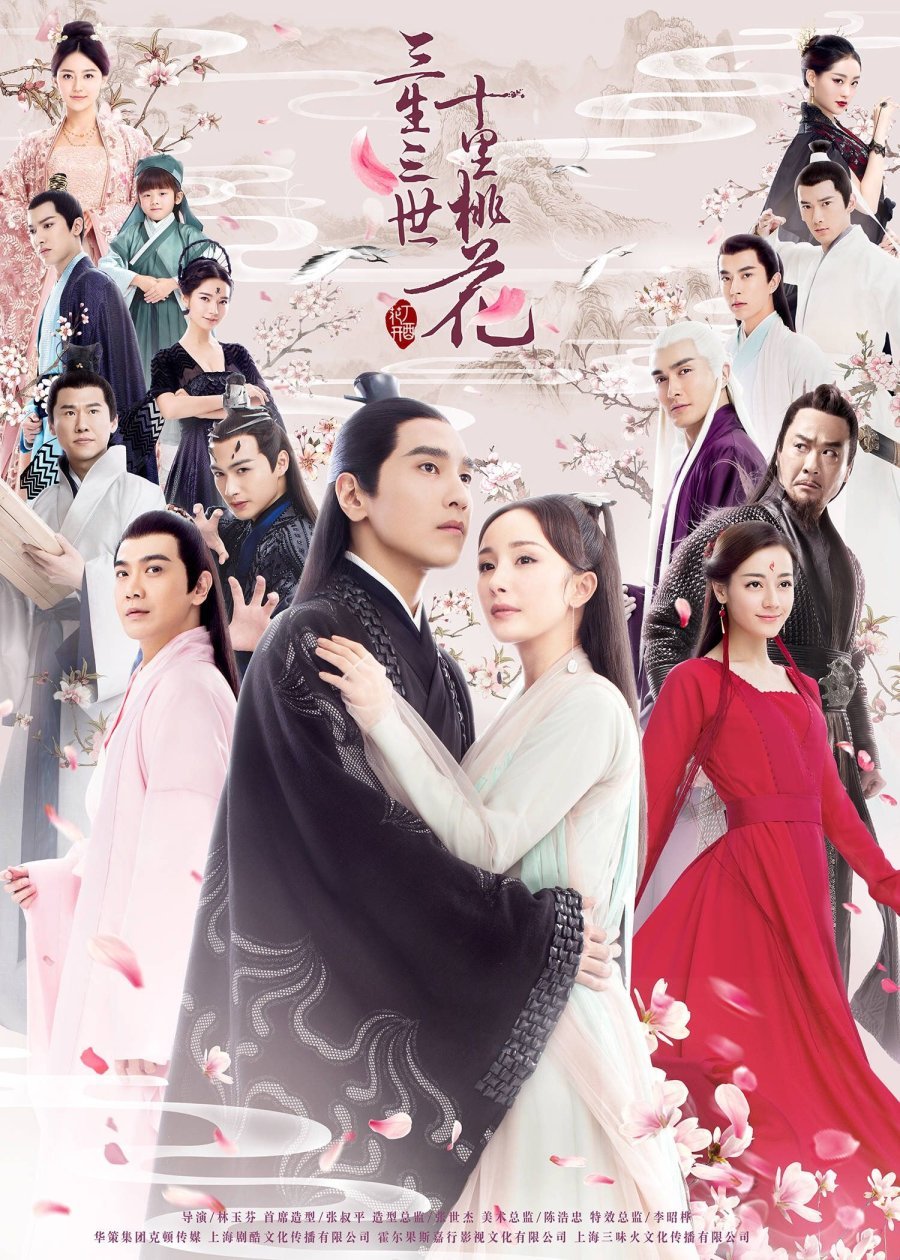 | 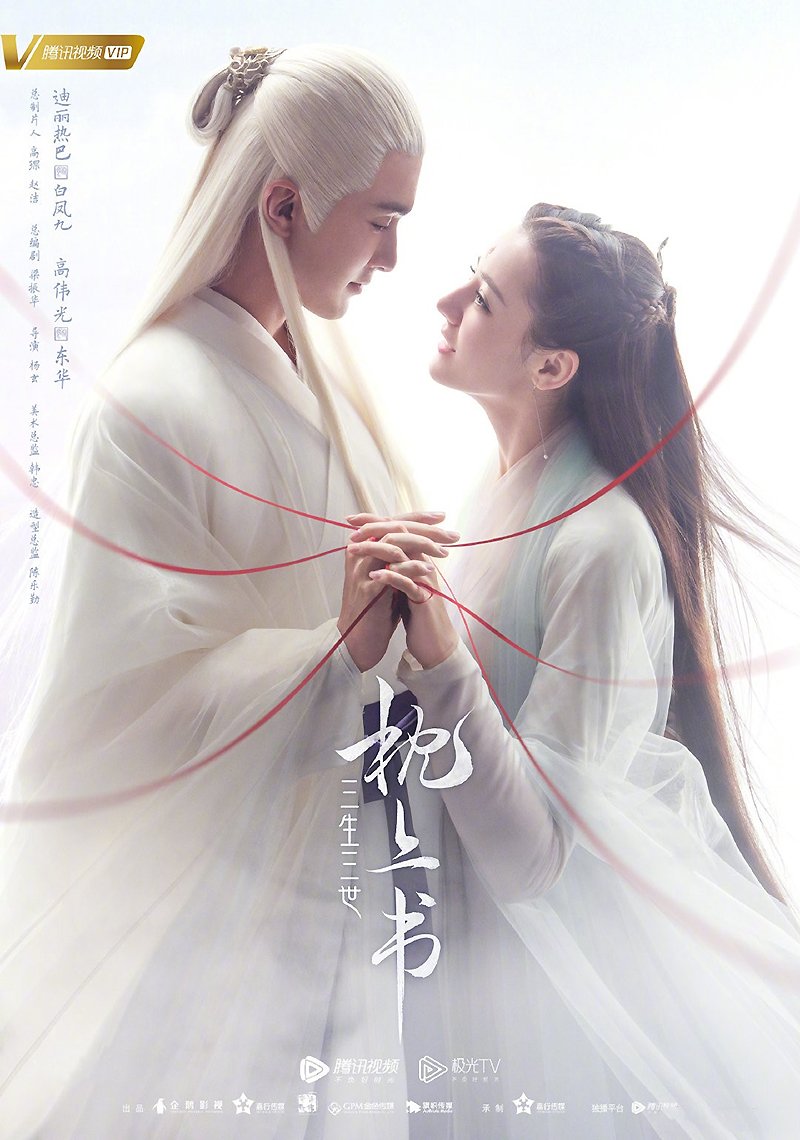 |
No translation nightmare can be discussed without the two popular Chinese drama titles based on the Eternal Love series of books. The original translation would be 'three lives, three worlds: ten miles of peach blossoms'. Peaches are a sign of longevity and luck in Chinese culture. In Chinese literature, peach blossoms are regarded as a sign of spring and are often associated with love and marriage, because spring is traditionally regarded as a season of romance. 'Ten miles of peach blossoms' would then allude to an intense love entanglement(source). What a beautiful thought! So while I have no problem with the English version of the drama title, I do feel it robbed us of the romance that the original one evoked. This would almost be a [D] in my book. Eternal Love of Dream or 三生三世,枕上书 The original translation would be 'three lives, three worlds: the book on the pillow/ pillow book' - I don’t even know where to start with this. For English-speaking viewers, this title is a bit risqué. A pillow book in English refers to a book containing erotic images and texts, so I can understand why the producers might have thought it's necessary to change the drama title. Unfortunately, the one they chose also doesn't fare well with respect to making sense. 'Eternal Love of Dream' itself is grammatically incorrect, unless, of course, they mean to say someone is eternally in love with a dream. Actually, that'd still be incorrect since it would be 'Eternal Love for a Dream'. In my humble opinion, 'A Dream of Eternal Love' or 'Eternal Love in a Dream' would have been a better option. I am open to listening to your suggestions for the title as well. Anyway, this is a case of [I], [II] and [A]. I shall also award it a [D] because I am generous like that! |
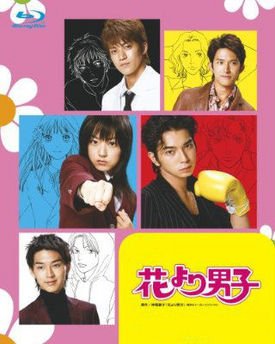 | 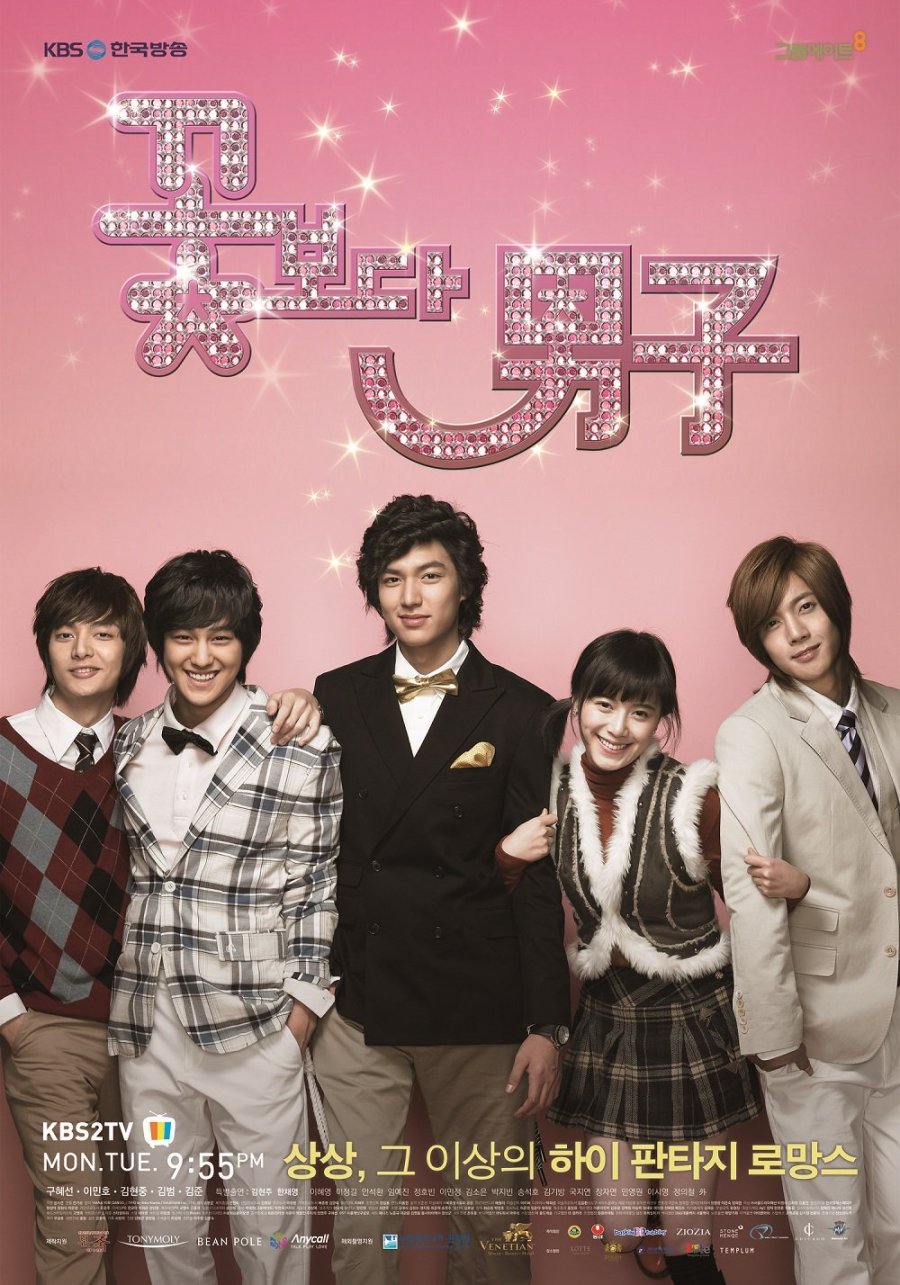 | 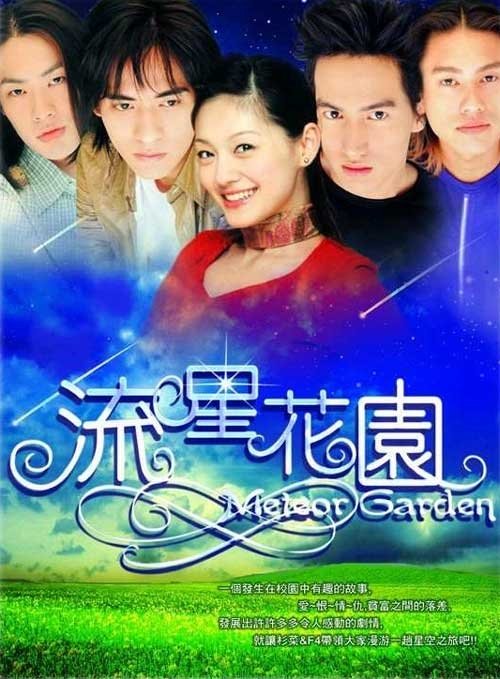 | 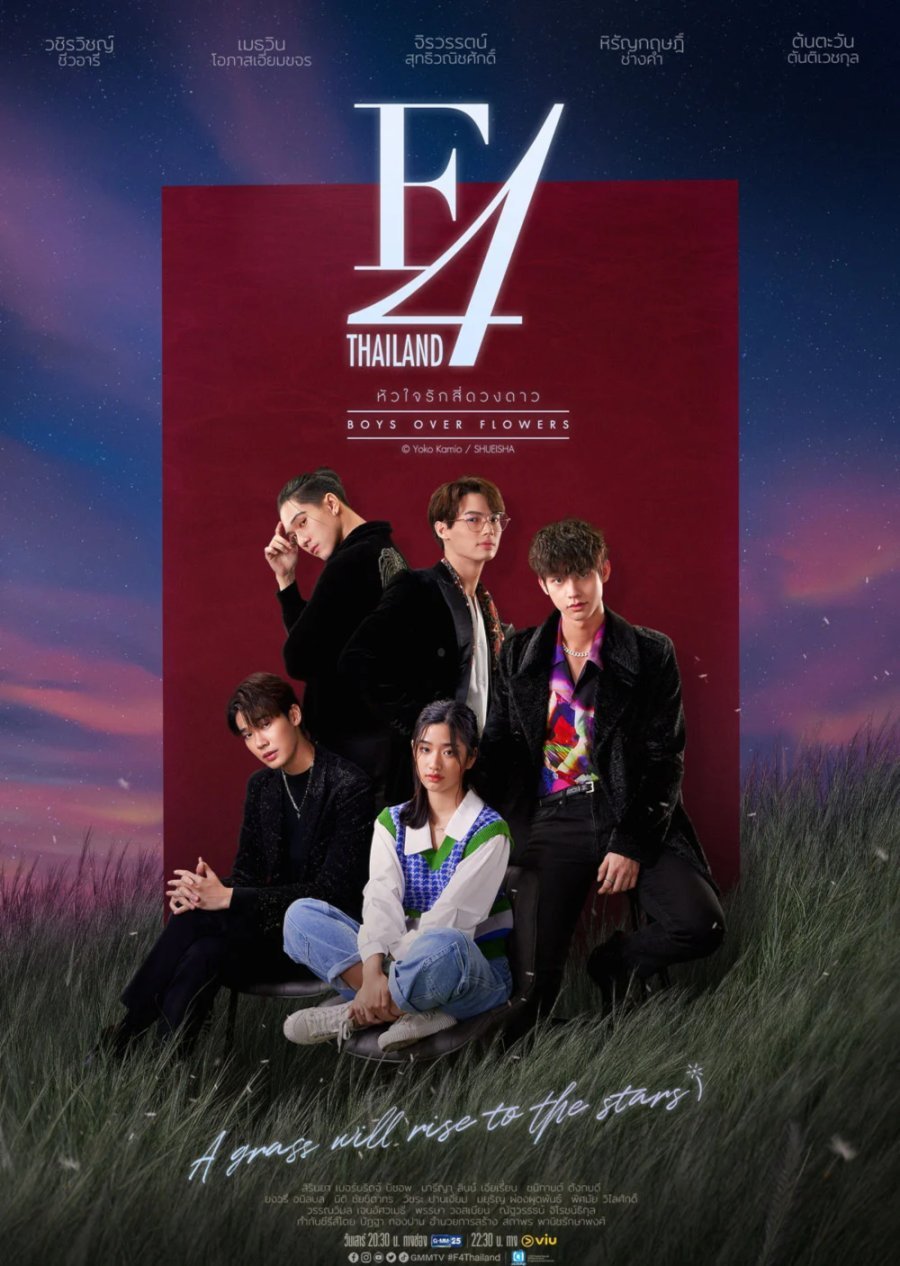 |
Based on a Shoujo manga, Hana Yori Dango or Boys over Flowers is one of the most successful re-adaptations, and similar to the Eternal Series it suffers from a tragic drama title. Partly because it has become famous and everyone recognises the English name, and also because it means something completely different in Japanese, this erstwhile title has been renamed as Meteor Garden (Taiwanese Edition) and the most recent F4 Thailand with varied success. Let us objectively and subjectively understand this title. 'Boys over Flowers' is grammatically incorrect. In English, comparisons are made over like-minded objects/subjects. 'Boy' refers to a male child. Comparisons should be made with either a female child or child of any sentient species. A flower is the seed bearing part of a plant and therefore, not like-minded enough to be compared with a boy. (In case you don't understand what I meant earlier. Imagine the flower as the mother, so, you can't compare the 'mother' with a 'boy'. You can, however, compare the 'mother' with a 'father'.) This is a classic case of literal translation error. The drama title '花より男子' is a Japanese pun. The word for boys & dumplings is interchanged in kanji and the Japanese phrase becomes 'dumplings over flowers', which means it's preferred to have dumplings which are of substance as opposed to something which is just pretty like flowers and only has face-value i.e. wanting a good/nice guy over a guy whose only saving grace is his looks(source). This kind of tongue-in-cheek humour unfortunately falls through the cracks when it comes to literal translations. So we have a case of [I], [II], [A], and dare I say a little bit of [III] - loss of cultural significance as well? Now, when it comes to choosing between the renamed Taiwanese or Thai version, I have a soft spot for Meteor Garden or 流星花園. The native title means 'flower garden' and, in my subjective opinion, retains the feeling of the original title without sounding completely idiotic. Do note this is my opinion and you may prefer F4 to it, which is perfectly fine as well. |
3. Sweet Teeth |
| This drama is adapted from a novel whose original title is '世界微尘里' or '世界微塵裡', it roughly translates to 'a speck amid the dust of the world'. This is a textbook case of a Chinese phrase having no literal English translation, because I am sure 世界微尘里 means something other than being a speck of dust. There is an alternate title, 'You mean Everything to me', which makes more sense in English. As is, 'Sweet Teeth' is grammatically incorrect. 'Sweet teeth' means your teeth are sweet, which makes no sense. 'Sweet tooth' on the other hand, is an English idiom which means someone has an extreme fondness for sweets/desserts. You could also express your love for a person by being cheesy and making this statement, 'you are my sugar and I have a sweet tooth'. Honey, Sugar, Sweetie are all terms of endearment used to address someone you think is sweet and adorable. My question is: why go for a shoddy replacement when you have a perfectly working alternate title to begin with? To me, this was a case of [I], [A] and [D]. |  |
| Again, based on a webtoon titled '일단 뜨겁게 청소하라?!' which roughly translates to 'first clean it hot', i.e - clean it like it's hot. This drama is about a man who runs a company in line with his obsession for cleaning. The alternate title 'Clean Up like it's Hot' is perfectly fine if we add an exclamation at the end, but the mess that is the English title would need a bit of explanation. The lack of punctuation marks help no one, and the title itself suffers from bad grammar. Firstly, we would use 'enthusiasm' for an action like cleaning. While 'passion' is a strong feeling or emotion and could be used here since the man is shown as borderline obsessive compulsive, the word is typically used when there is an active desire. In this case, even though it's exaggerated, he can't quite help himself. Also, it should be 'For now, clean with passion!' or 'Clean passionately, for now!'. The Chinese adaptation has the cute name 'Cleaning Elves' but the English version is pretty bland Use for My Talent. As it stands, the K-drama title suffers from [I], [II] and [A]. I'm not sure on whether to award it a [D] as well. | 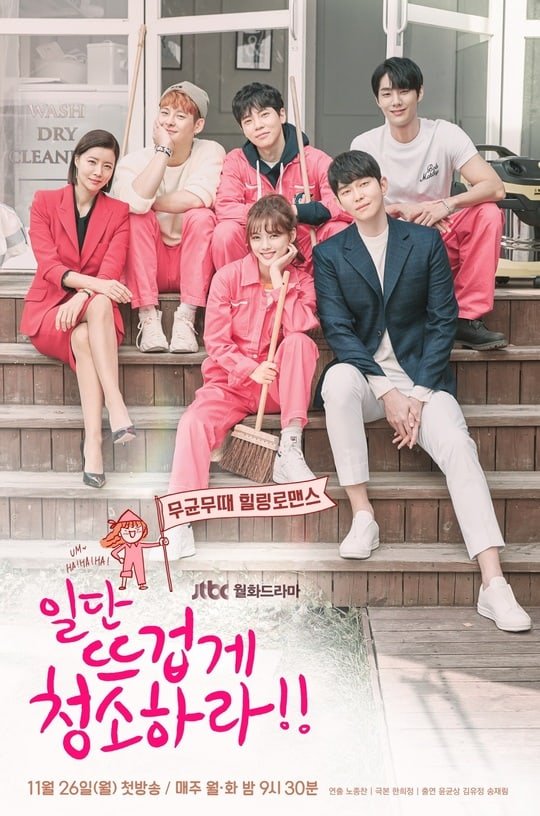 |
|
These titles are either victims of [II] Literal Translation or [D] Bad Titles and mean something completely naughty in English. I thought they deserve a category of their own because I find them hilarious. What can I say, grade school humour is comedy gold for a reason! Considering how these innuendos have absolutely nothing to do with the actual storyline of the drama, I enjoy it even more. :)
| King is Not Easy should retain its alternate title - 'It's not easy being King' and add an 'a' before 'King', and we would have a more than passable English title. As it stands, the title lacks a verb and implies the dude named 'King' is not an 'easy' fellow. Good for King, but considering the time period this drama is set in, it sounds farfetched. 'Easy', of course, is a slang for sleeping around and this is not what the drama is about. As per MDL page, Dirty Mama is about a mother who is described as “dirty” because she doesn’t mind taking bribes or leaking information if it is to her own advantage. But in English, 'dirty' is often associated with the dirtier connotation similar to our brother 'easy' above! You wouldn't want to call anyone's mama dirty. That's just plain rude. Legal High in English means a substance with mood-altering properties of which the sale/use is not banned by the law a.k.a. legal drugs. Looking at the drama poster (3rd from left below), it could pass off as two people on a bender. But the drama, unfortunately, is about two attorneys and their different way of working the law. <sigh>
MDL drama posters: King is Not Easy, Dirty Mama, Legal High, Happy Noodle, Sweet Buns, Second Virgin Happy Noodle. LOL. I think we have all heard this phrase as children. I still have a smile on my face as I write this. To be fair, a foolish person can be called a 'noodle', but the word is generally used in English to refer to the male appendage. Yeah. And the sad part is that the drama is about a chef who makes great noodles - the food sort. What a wasted opportunity!Our bottom is also called a bun in English, so Sweet Buns is -----. Fill in the blanks. Sir Mix-a-lot would have been a happy audience if the drama was actually about buns, but as is the case with the noodles, this drama sadly revolves around 'a sweet bun' - the food sort. And if you are wondering where the plural 'buns' comes from, your guess is as good as mine. The Japanese drama Second Virgin or セカンドバージン is about a divorced woman who embarks on an affair with a young man and acts as a confidant to a young couple with conjugal problems. Considering the storyline, I'm somewhat sold on this title being apt since it does generate an interest to watch the show. Mine at least. And there is nothing accidental about Bad Buddy Butt as the drama is what you think it implies, except for the wrong grammar. The original title is 愛棒 -激情版- ~ヒロとマモルの事件簿~ or 'Love Stick - Passion Edition - Hiro & Mamoru's Casebook'. On second thought, this seems to be a pun on Bad Buddy. Hmm. |
|
Some titles aren't exactly victims of translation errors even though they sound or feel awkward, i.e. do not feel comfortable to say aloud.
The Japanese drama My Right Older Brother is actually 'My righteous older brother'. I am not sure why they edited out four letters during the marketing. This English version sounds licentious considering the 'brother' here is not really her brother but just bears an uncanny resemblance to him. You'd know what I mean if you saw the poster. I think it barely passes victimhood because it's generally known by its Japanese title 'Watashi no Tadashi Oniichan'. Gloomy Salad Days, original Taiwanese title '死神少女' meaning 'The Grim Reaper Girl', sounds awkward but is surprisingly English. In the sense, the phrase 'Salad Days' is a Shakespearean idiomatic expression that means a youthful time, a period of carefree innocence, idealism and pleasure associated with youth (source). Though the title lacks punctuation (Gloomy 'Salad Days'), it saves itself from the victimhood of poor translation. The Inheritors or The Heirs in Korean is '왕관을 쓰려는 자, 그 무게를 견뎌라 – 상속자들' or 'Whoever wears the crown, bears the weight - Heirs'. I can't stand Oppa, but the original title sounds way better than the English version. |
The following are dramas adapted from Chinese novels that have perfectly fine English titles, but, in my humble opinion, suffer from loss of cultural significance [III] and romanticism. In my book, these are bad titles [D].
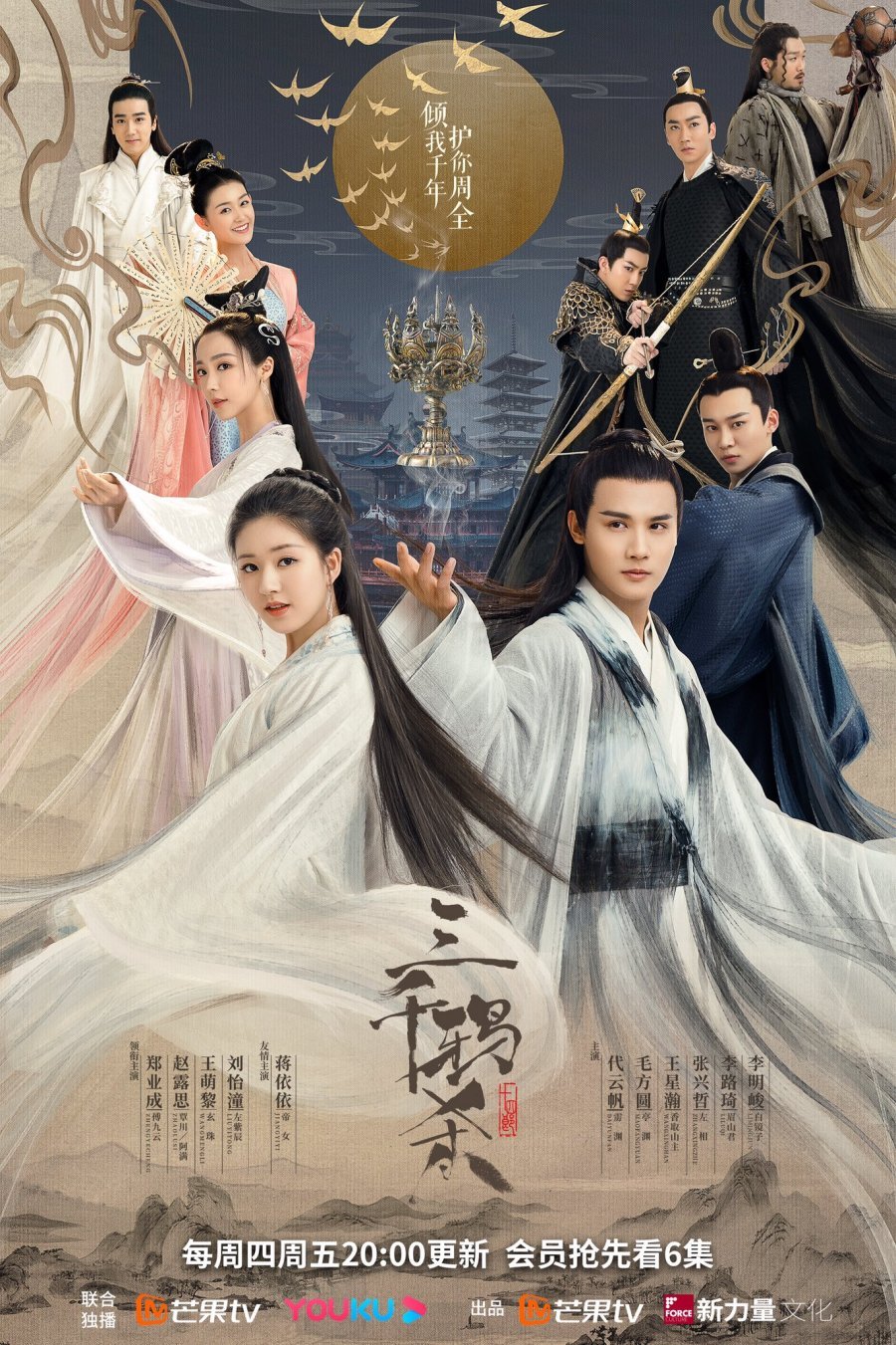 | 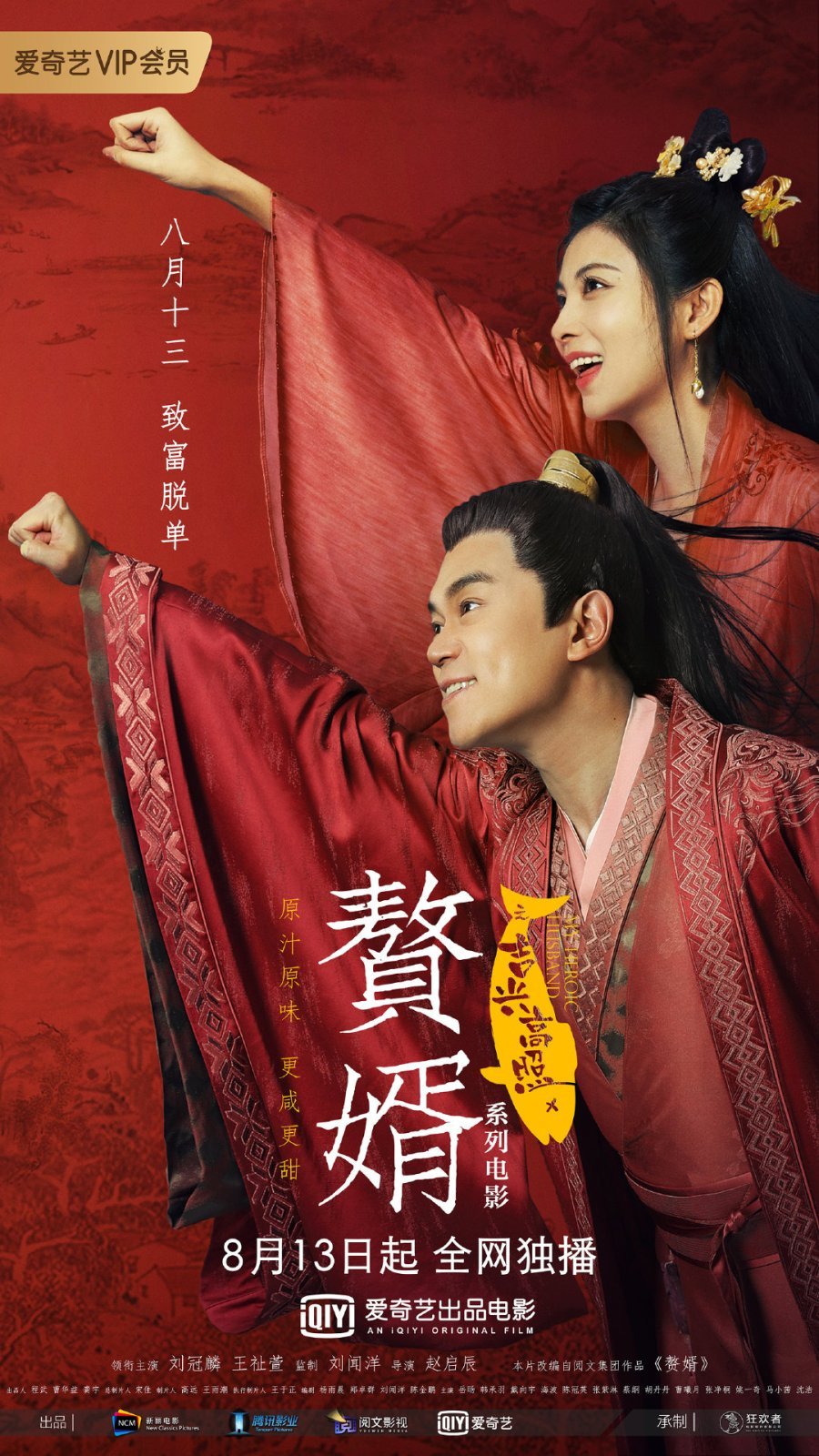 | 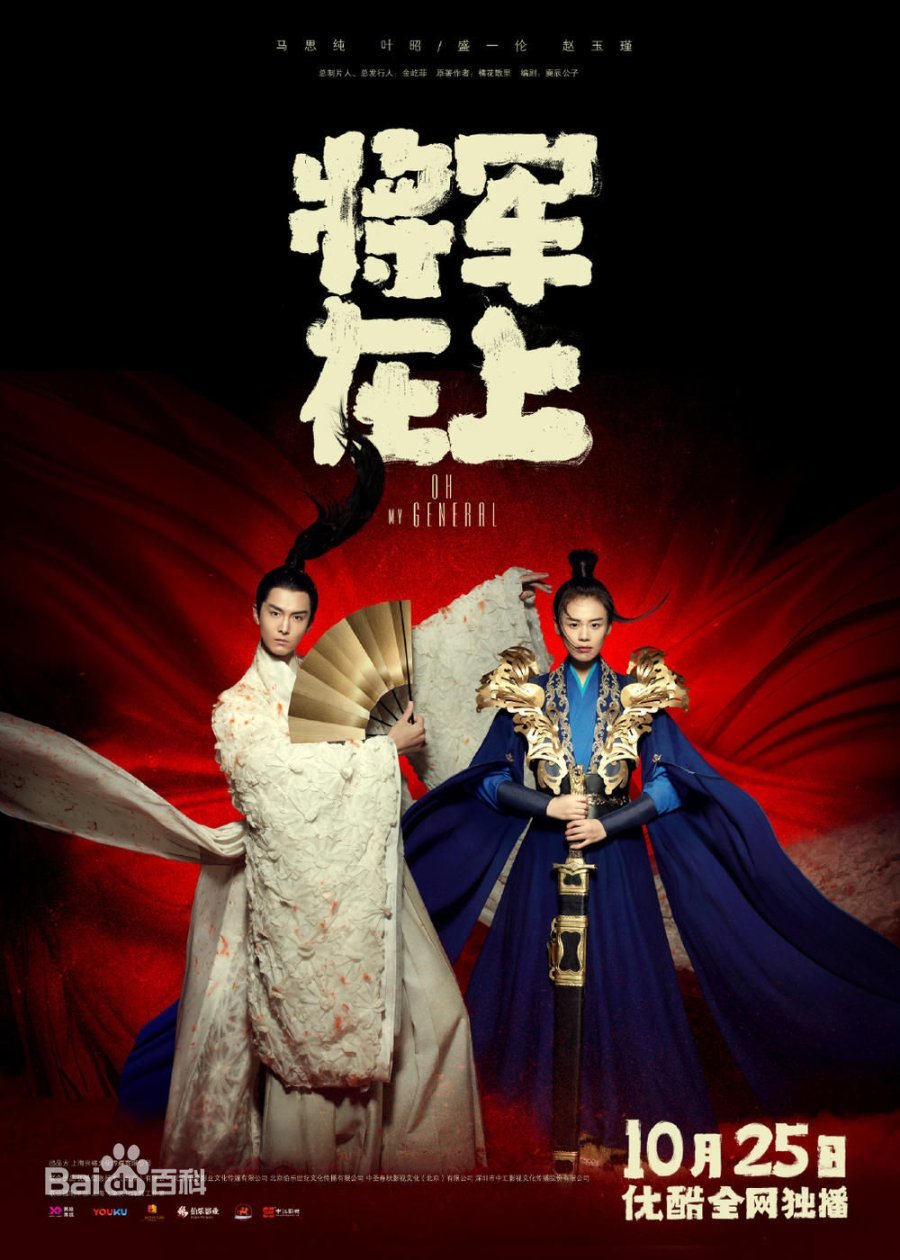 | 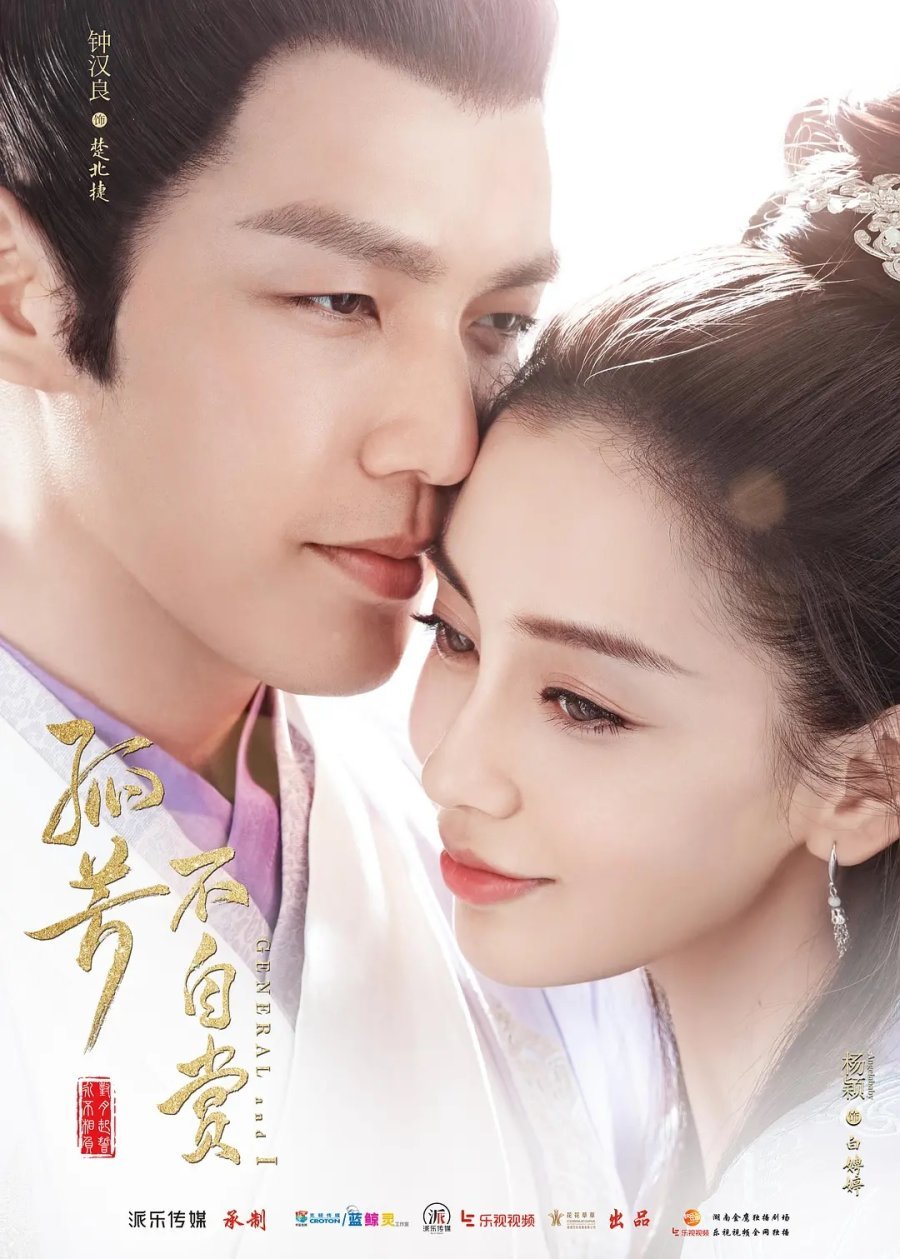 | 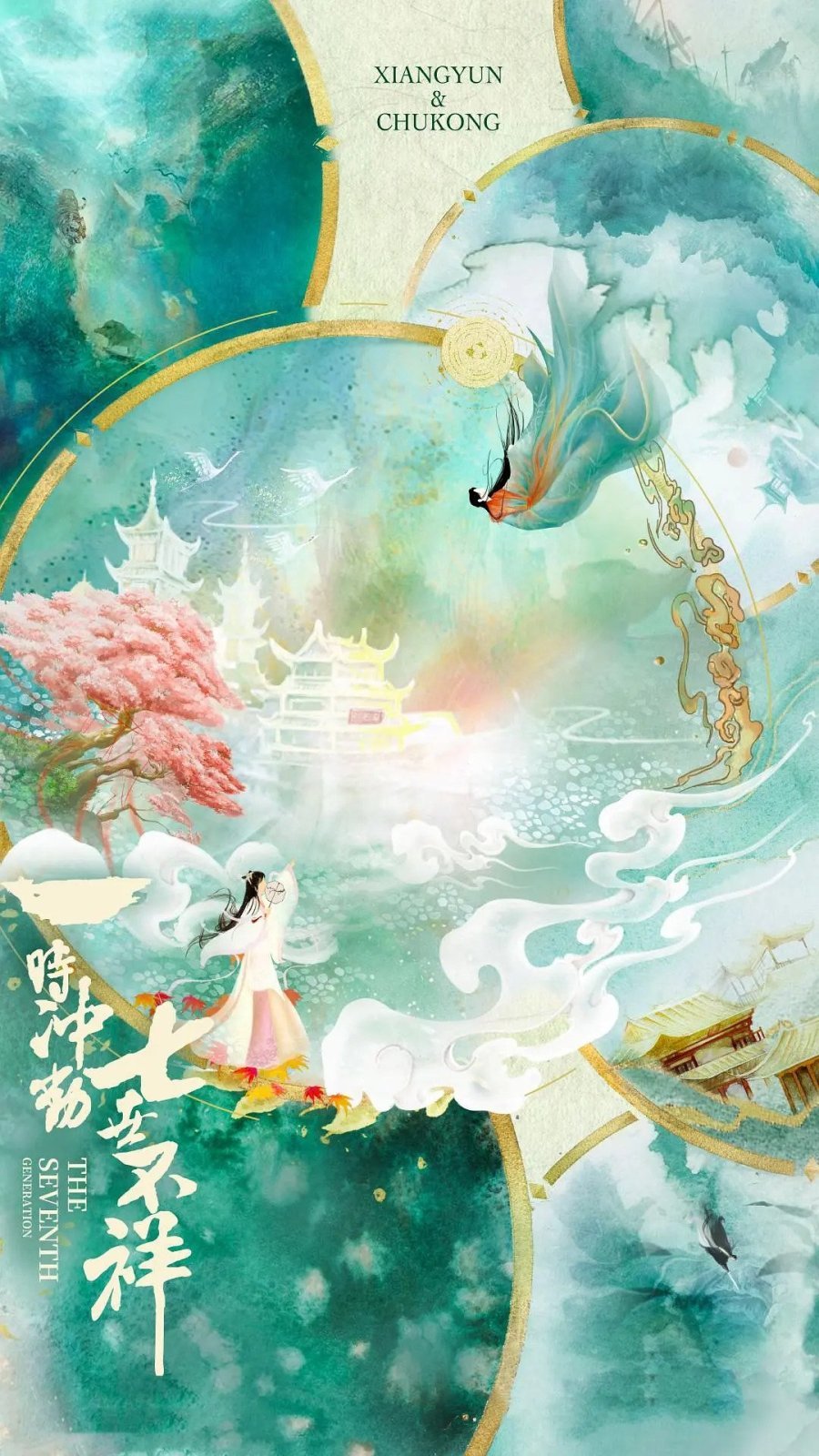 |
MDL drama posters from clockwise: Love of Thousand Years, My heroic husband, Oh My General, General and I, The Seventh Generation It's weird how the link for Love of Thousand Years on MDL reflects a different name, but its original title is '九云辞' meaning 'The ballad of Jiu Yun', or the alternate title '三千鸦殺' i.e 'The killing of three thousand crows'. I can understand why they didn't prefer the first option as it's a very common title but they could have gone for 三千鸦殺. The latter feels like a classic Chinese title and more culturally apt if I may say so. The original novel title for My Heroic Husband is 赘婿 or 'Live-in son-in-law'. In English, it means 'House husband'. In the historical period which this drama is set in, being a house husband would have been a source of shame. I can understand how the English title is a form of sarcasm but I prefer the comedy of the original. Similar to the 'house husband' is Oh My General – originally 'The general above, I am below'. Looking at 'Eternal love of a Dream', I think we should all just be happy with this title, but if you think about the loss in significance as the drama is about a female general and her dandy-like husband. 'The general above me', though slightly risqué, would have probably been a better option. The novel 'A Lonesome Fragrance Waiting To Be Appreciated' became General and I. All that heartache wiped out by such a sundry title! Such a shame. The new Chinese drama The Seventh Generation has a rather complicated problem. Based on a novel which has three alternate titles: (a) '一时冲动, 七世吉祥' means 'On the spur of the moment, the seventh is auspicious' or (b)'一时冲动, 七世不祥' means 'On the spur of the moment, the seventh is ominous' or (c) the alternate English title 'Seven Unfortunate Lifetimes, All Thanks to a Single Moment of Impulse' Never would I have thought that 'auspicious' and 'ominous' could be so easily interchangeable. Alas, all of these version sound better than the English title! |
After knowing about all these drama titles, we can comfortably conclude that there’s a lot lost in translation besides the cultural context. Needless to mention, there are way too many titles which have suffered from a lack of sense. This is in no form an exhaustive list of drama titles. So, in the hopes of keeping this article readable, I shall stop here. Are there any drama titles that tickled you pink or had you scratching your head? Let me know in the comments below!
POST SCRIPT & DISCLAIMERS: 1. Sarcasm. 2. Sarcasm and a bit of conjecture. There are multiple logical & financial reasons why a production house doesn't come up with a sensible title. I don't know, maybe. No offence intended or otherwise. 3. An English phrase describing the period from 2000-09. Also, if you google translate it into Chinese, Japanese or Korean it gives back nonsense. Your welcome! Most of this article is based on personal preference and opinion. Please refrain from mud slinging in the comments section. I will not respond but will enjoy watching the show. Also a thank you to the Editors for their hard work! SOURCES: Coverpic/ All Gifs are created by me unless linked to source. Links to the source are provided at the end of the sentence (sic) in case of direct quotes. Further language sources are tofugu, translationjournal, blog.bigtranslation & englishgrammar. Many of the titles have been picked from MDL thread and Reddit. Novel references are picked up from qidian.com or shuqi.com. Drama posters/summaries are based on the MDL page for each drama. This article is also extensively littered with terms Google translated by me. |
Edited by: Tine (1st editor)

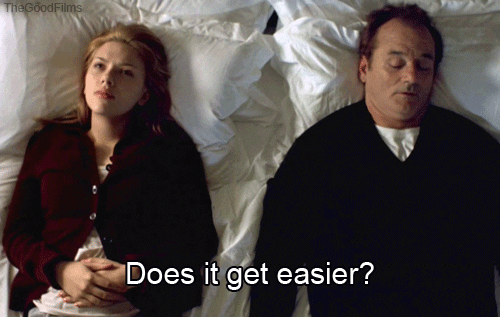
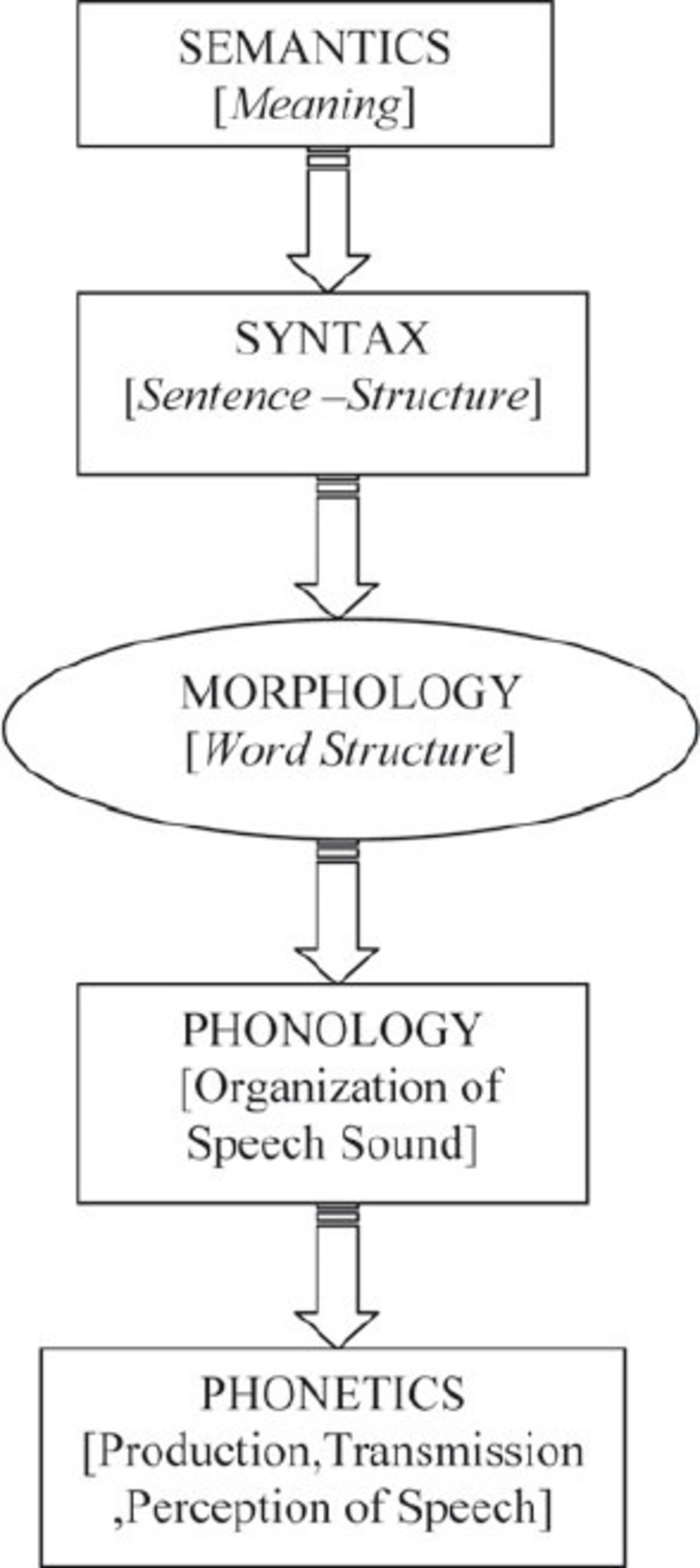
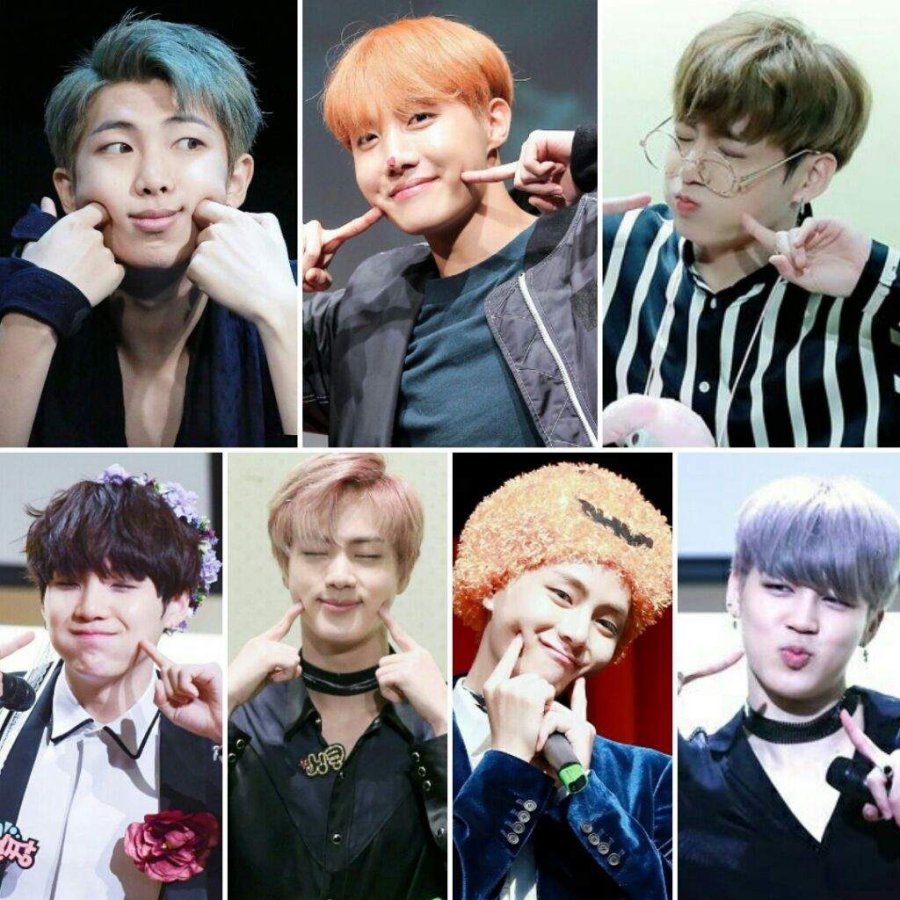
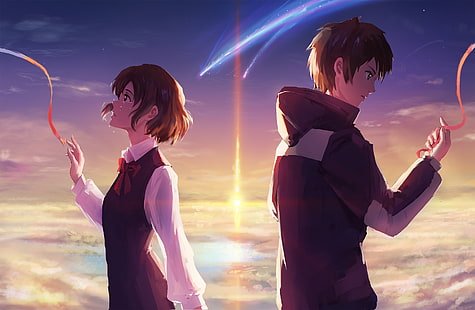
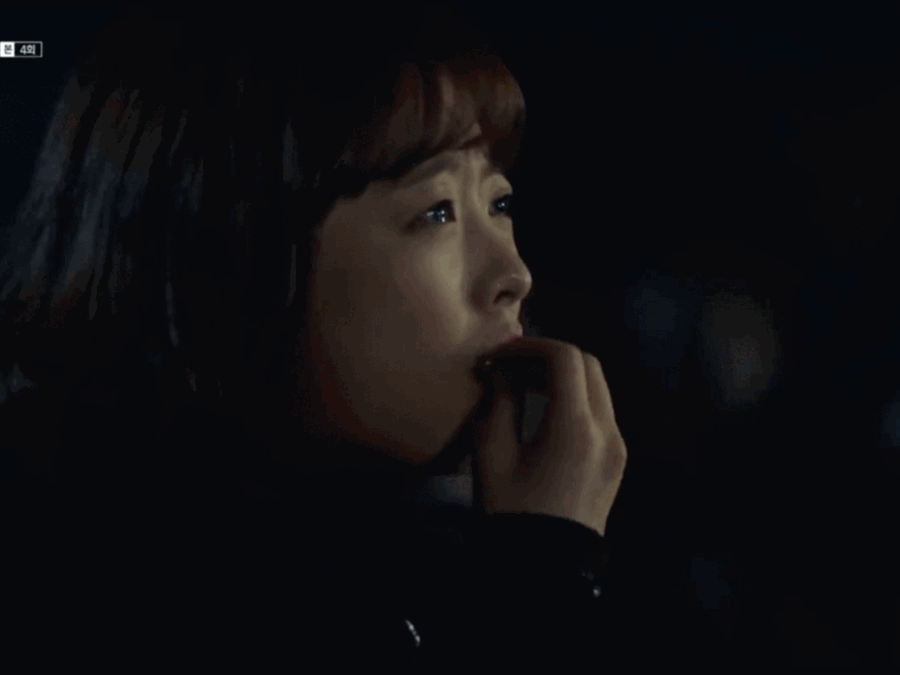
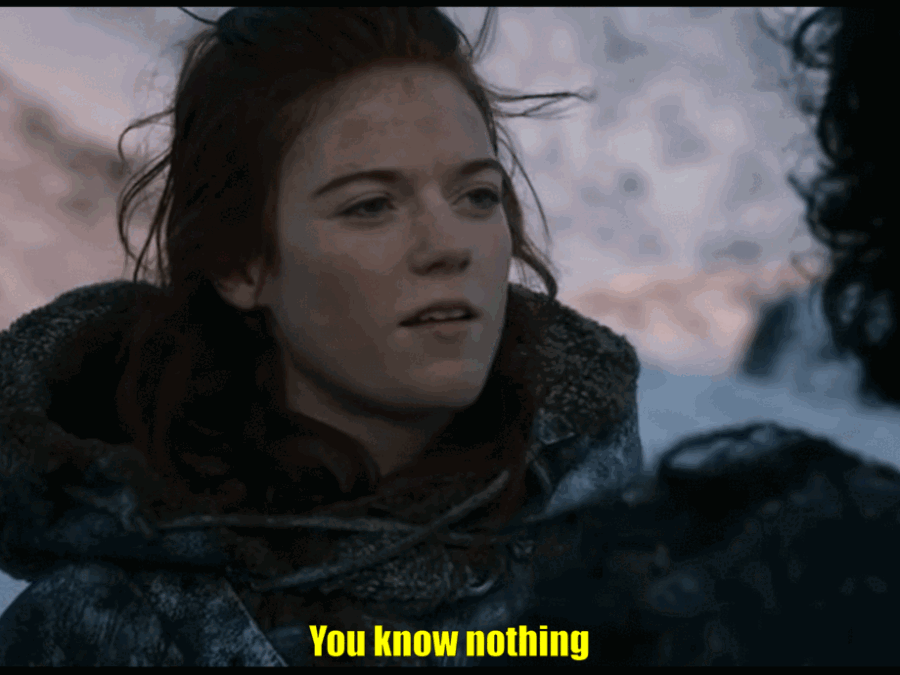
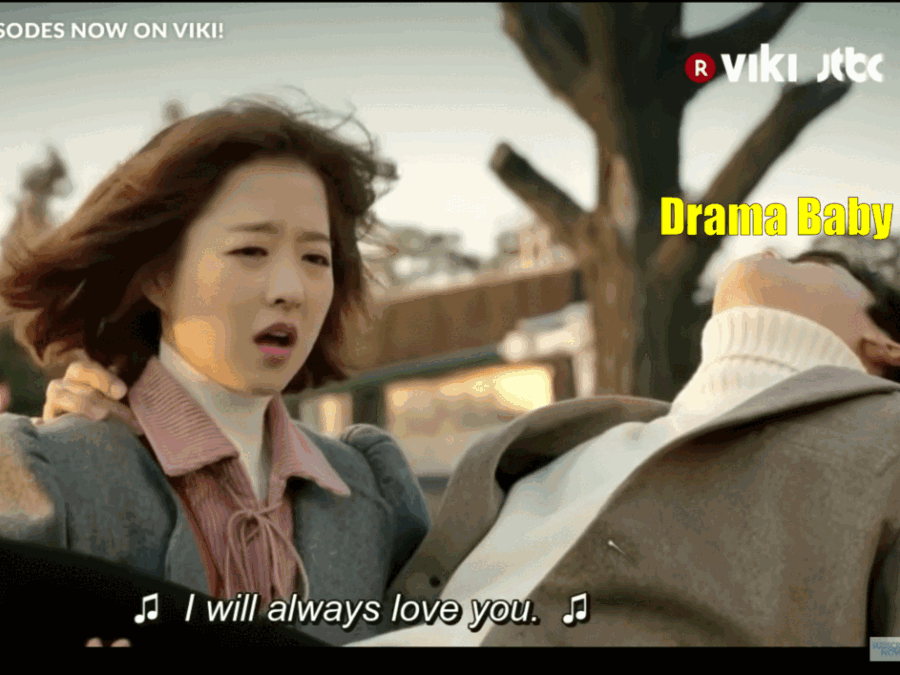
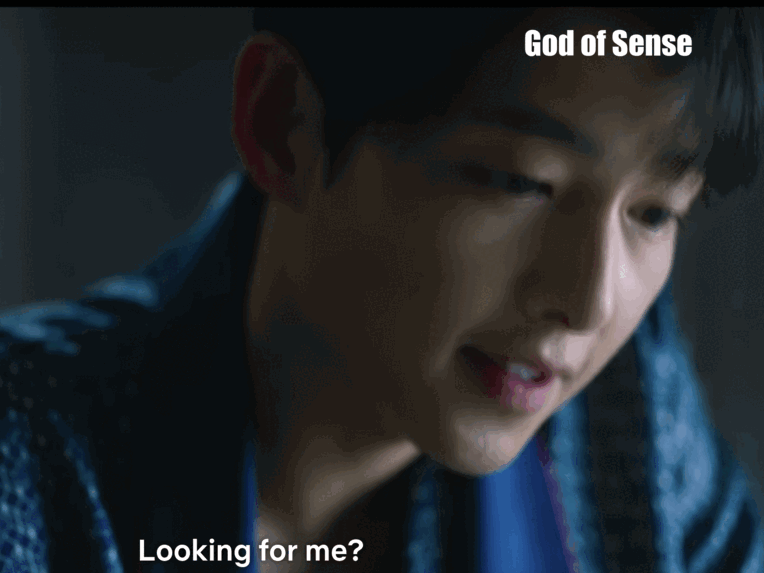 Another reason is that the title made no sense to begin with and no one expected it to become an international hit as their target audience was local. This is true for a lot of the older dramas released in the aughts3, lower budget dramas, and sometimes just because they are '
Another reason is that the title made no sense to begin with and no one expected it to become an international hit as their target audience was local. This is true for a lot of the older dramas released in the aughts3, lower budget dramas, and sometimes just because they are '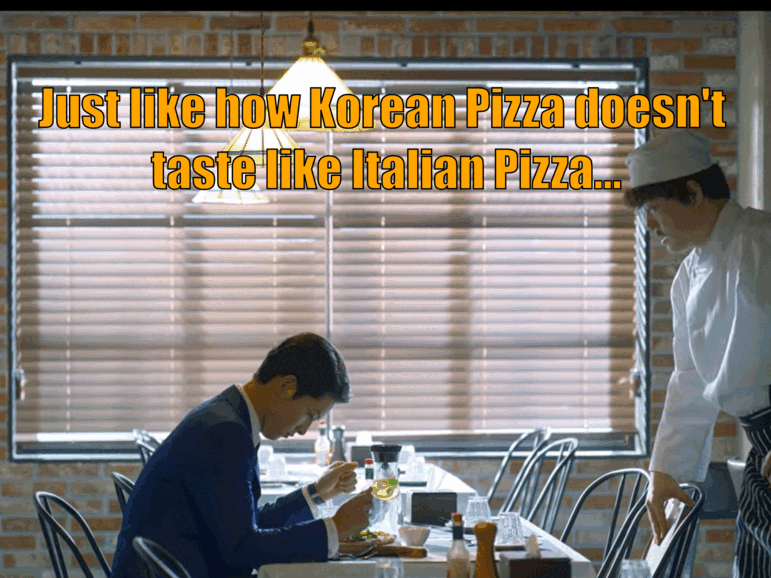 is a local version of Korean-English (Konglish), Chinese-English (Chinglish) or Japanese-English (Wasei-eigo). To the language purists, this would be called pseudo-loanwords or pseudo-anglicisms, whereby these languages have adopted certain English words into their use.
is a local version of Korean-English (Konglish), Chinese-English (Chinglish) or Japanese-English (Wasei-eigo). To the language purists, this would be called pseudo-loanwords or pseudo-anglicisms, whereby these languages have adopted certain English words into their use.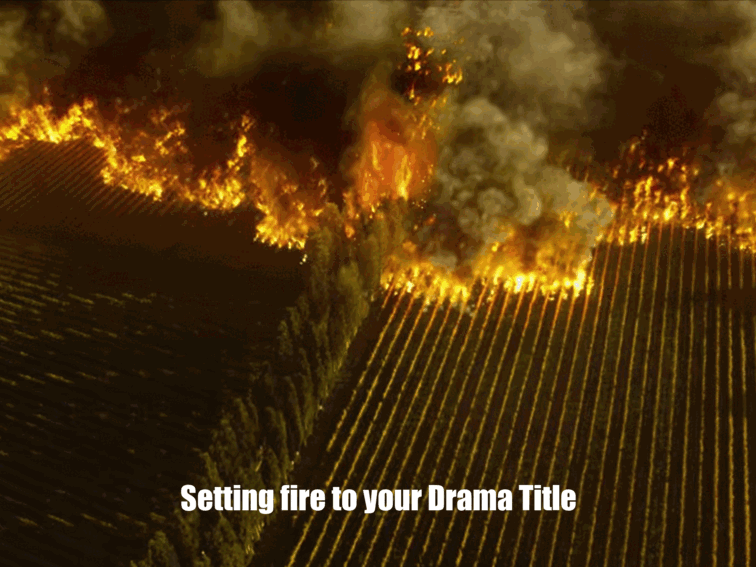 relevance to the storyline or does no justice to the actual drama it represents. This happens due to an active choice made by the 'powers that be' to change the original title, which was perfectly acceptable, into a trash title. And sometimes the original title may be a bad choice of words anyway.
relevance to the storyline or does no justice to the actual drama it represents. This happens due to an active choice made by the 'powers that be' to change the original title, which was perfectly acceptable, into a trash title. And sometimes the original title may be a bad choice of words anyway.